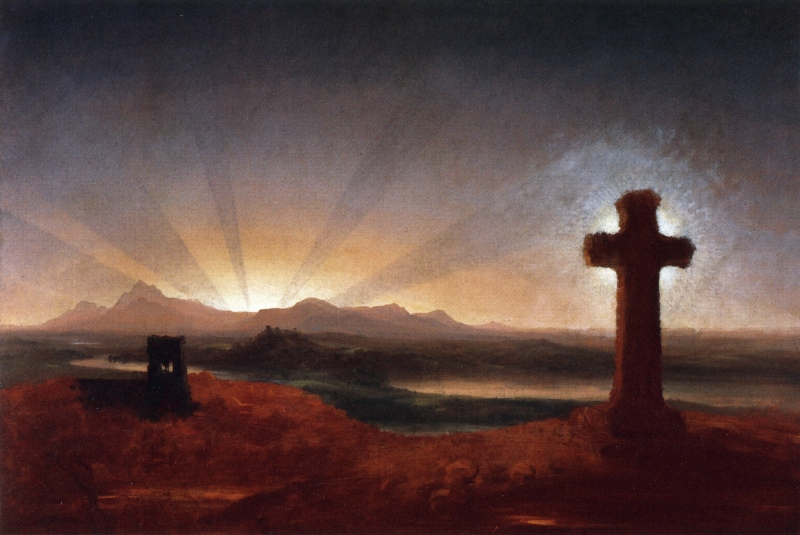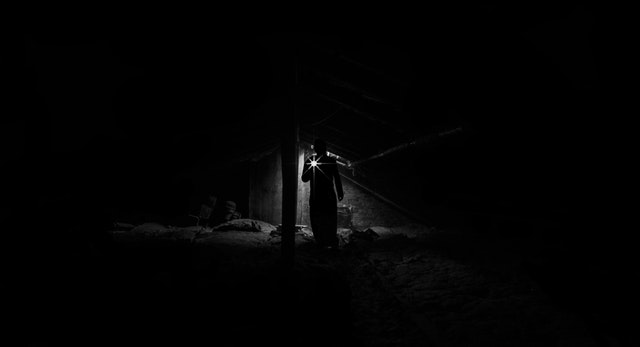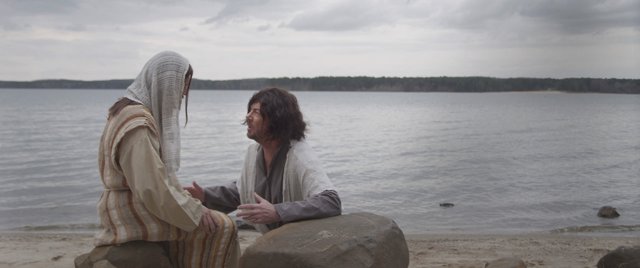“And I give unto them eternal life; and they shall never perish…” John 10:28 “Jesus said unto her, I am the resurrection, and the life: he that believeth in me, though he were dead, yet shall he live:” “And whosoever liveth and believeth in me shall never die. Believest thou this? John 11:26 “Fight the good fight of faith, lay hold on eternal life, whereunto thou art also called…”1 Timothy 6:12 “…and hast professed a good profession before many witnesses.” 1 Timothy 6:12B Have we transferred eternity into our profession? Do we believe eternity? Timothy did. Do we profess eternity? In an article called “Seeking eternal life, silicon-valley is solving for death,” https://qz.com/ we read: “For years now, the luminaries of Silicon Valley have been putting their minds, money, and machines behind an all-out effort to solve for death. Full of futurists who don’t have enough time in the day to achieve their lofty goals,…
Category: <span>Personal God</span>
Do not participate in the unfruitful deeds of darkness, but instead even expose them; for it is disgraceful even to speak of the things which are done by them in secret. But all things become visible when they are exposed by the light, for everything that becomes visible is light. For this reason it says, “Awake, sleeper, And arise from the dead, And Christ will shine on you.” Ephesians 5:11-14 Light brightens up our darkness, and in the light we gain more and more light in the rooms of our soul. Rooms of our soul? The metaphor was first painted by our Founder and Pastor, Dr. Carl Stevens. He states, “The first thing grace teaches us is to deny ungodliness. Then we can live “soberly”—with discreet, quiet truth, having the rooms of our soul filled with categorical doctrine.” He continues, “Once the foundation, which is Christ, has been established in…
There hides a secret place and there a person finds a stairway leading up. In that secret place of Song of Solomon 2:14 the safe zone promotes our elevation, our lift, our rising above. There He encourages our voice, our countenance. There hides another place, a strong tower, where we also ascend to the highest overlook possible. Here, in His nature, we are above our enemies. A third hiding place preserves from trouble; songs of deliverance flow around. Another places us under His wing’s shadow. Psalm 32:7, Proverbs 18:10. Psalm 91:1 Corrie and Betsie ten Boom were middle-aged sisters working in their father’s watchmaker shop in pre-WWII Holland. Their uneventful lives are disrupted with the coming of the Nazis. Suspected of hiding Jews & caught breaking rationing rules, they are sent to a concentration camp, where their Christian faith keeps them from despair and bitterness. Betsie eventually dies, but Corrie survives,…
A believer reckons two things: I’m dead indeed unto sin. I’m alive unto God. Well here’s three: For I reckon that the sufferings of this present time are not worthy to be compared with the glory which shall be revealed in us. Romans 8:18 We reckon as in our soul’s ledger book — zero on the sin side, heavy on the resurrection side, light on the suffering side. To conceal or reveal? that is a question in reckoning? It is the glory of God to conceal a thing: but the honor of kings is to search out a matter.. ..It is his (man’s) glory to pass over a transgression. A talebearer reveals secrets: but he that is of a faithful spirit conceals the matter. Proverbs 11:13 A prudent man conceals knowledge: but the heart of fools proclaims foolishness. Proverbs 12:23 …God was in Christ, reconciling the world unto himself, not imputing their trespasses…
“While imprisoned in a tiny prison cell for his attempts to reform the Church, sixteenth-century Spanish mystic John of the Cross composed many of his now classic poems of the soul’s longing for God. This poem is, “Dark Night of the Soul.” On a dark night, Kindled in love with yearnings—oh, happy chance! — I went forth without being observed, My house being now at rest. In darkness and secure, By the secret ladder, disguised—oh, happy chance! — In darkness and in concealment, My house being now at rest. In the happy night, In secret, when none saw me, Nor I beheld aught, Without light or guide, save that which burned in my heart. This light guided me More surely than the light of noonday To the place where He (well I knew who!) was awaiting me— A place where none appeared. Oh, night that guided me, Oh, night more…
Paul McCartney wrote of a blackbird singing in the dead of night; Paul, the apostle sang with Silas in jail at night and David played the harp for troubled Saul. “…I sing because I’m free, His eye is on this sparrow, and I know He watches me.” Have you ever sung a song in a dark time? “The whip-poor-will is a nocturnal bird. This means it wakes at night and sleeps during the day. It sings loudly at dusk.” “Thrushes are famous for their singing ability, but many people who appreciate bird song consider the hermit thrush to have the best song of all birds. It often sings in the late evening or at night.” “In cities, birds sometimes sing at night during the breeding season. …This was possibly because the birds confused the high levels of artificial light with sunrise. Other research in the UK on European robins showed a…
“Simon, son of Jonas, do you love me more than these?” He said to him, “Yes, Lord; you know that I love you.” He said to him, “Feed my lambs.” “Simon, son of Jonas, do you love me?” He said to him, “Yes, Lord; you know that I love you.” He said to him, “Tend my sheep.” “Simon, son of Jonas, do you love me?” Peter was grieved because he said to him the third time, “Do you love me?” and he said to Him, “Lord, you know everything; you know that I love you.” Jesus said to him, “Feed my sheep. Jesus questioned Simon Peter about his love for Him using the Greek word for love, “agape.” Simon responded with another Greek word, “phileo.” This happened twice but the third time Jesus led with “phileo.” Peter recoiled at the third inquiry, but assured Jesus of his “phileo” love for…
“Drug addiction is another possible effect of powerlessness.” “The basis of addiction is ‘a lot of weakness’ and ‘a blocked anger.’” “The weakness takes the form of ‘I can’t meet the demands of my family.’ ‘I can’t get a job,’ ‘I am sexually impotent,’ ‘I am a no person.’” “The anger takes the form of the addict’s revenge upon his family and the world for forcing him into this painful position of powerlessness.” “The heroin wipes away all the discomfort of perpetually feeling weak.” “No more inferiority, no more worry about being a failure in the working world, no more fear of being a coward in battle, no more disappointing one’s parents — all of these oppressive feelings evaporate.” Rollo May from his book, “Power and Innocence.” The 70’s were the experiential background for Dr. May’s observations. Feelings of being “no person” and anger toward family were the familiar tune…
“Who shall separate us from the love of Christ? — shall tribulation, or distress, or persecution, or famine, or nakedness, or peril, or sword?” “As it is written, For thy sake we are killed all the day long; we are accounted as sheep for the slaughter. Nay, in all these things we are more than conquerors through him that loved us. For I am persuaded, that neither death, nor life, nor angels, nor principalities, nor powers, nor things present, nor things to come, Nor height, nor depth, nor any other creature, shall be able to separate us from the love of God, which is in Christ Jesus our Lord.” Romans 8:35-39 Friends, we all, as sheep have gone astray, all to our own way, but God has laid on Christ the iniquity of us all. As humans we go astray like sheep go astray, we drift, we wander, we fall…
“…what is capable of strength must be made strong. This is the Divine Law throughout all of life…” The Expositors Bible., “The world is ‘a vale of soul making,’ a great sculptors shop, and we are the statues.” “…the statues must endure many blows of the chisel and be hardened in the fire.” “This is not optional.” “…without it we have no face with which to face God.” Kreeft quotes C.S.Lewis from one of his allegorical books, “How can we meet the gods face to face till we have faces?” “That is the meaning of life: getting a face, becoming real…” Peter Kreeft. A person acquires a face? “Aaron, the high priest, went into the Holy of Holies once a year, he had to burn incense on the coals coming out from the outer altar so that he couldn’t see the mercy seat. He had to look up, because he wasn’t…









